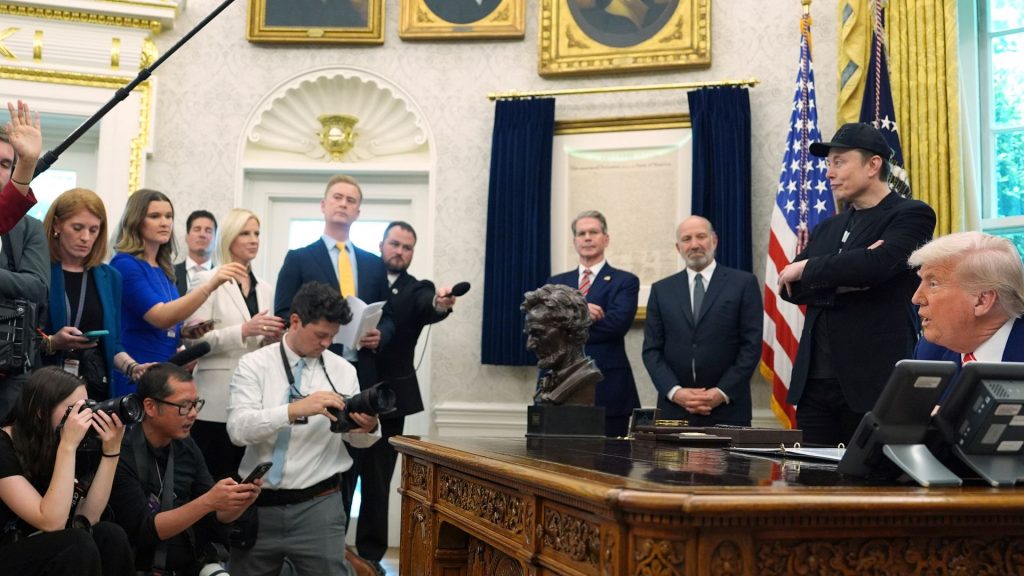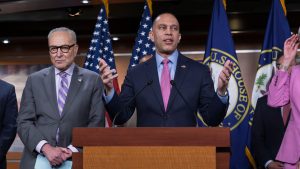Lawmakers, advocates want to see changes to Trump’s ‘big beautiful bill’

A bill that makes President Donald Trump’s 2017 tax cuts permanent and advances several parts of his agenda for his second term has passed the House of Representatives. Before it gets through the Senate, though, lawmakers, advocates and others want to see changes made to it.
As Straight Arrow News previously reported, if the Senate changes the version of the bill the House past, it has to be re-approved.
Howard Gleckman, senior fellow at the Urban-Brookings Tax Policy Center, told CNBC that the Senate bill will likely not be “that much different” overall than the House’s version, but added that he expects “a lot of debate” about the Medicaid provision.
Cuts to Medicaid in the budget bill could cause millions of people to lose coverage, according to estimates by the Congressional Budget Office. It adds new rules and paperwork requirements as well.
In an interview on NBC News‘ “Meet the Press” on Sunday, June 1, Republican House Speaker Mike Johnson said that 4.8 million people will not lose their Medicaid “unless they choose to do so.” He argued that the bill imposes “commonsense” work requirements.
Lawmakers have seen much pushback to these cuts, though, including Sen. Joni Ernst, R-Iowa. She received criticism when she responded to a constituent concerned about Medicaid cuts by saying, “We all are going to die” at a Friday, May 30 town hall meeting. She responded on Saturday, June 1 with a video where she sarcastically apologized for making the “incorrect assumption that everyone in the auditorium understood that yes, we are all going to perish from this Earth.”
What changes do people want to see in the bill?
Sen. Rand Paul, a Republican from Kentucky, said on CBS News’ “Face the Nation with Margaret Brennan” on Sunday, June 1 that the “math doesn’t really add up” when it comes to what Trump has called his “big, beautiful bill.”
“I think they’re asking for too much money,” Paul said. However, he added that he would vote for it if a provision raising the debt ceiling was taken out.
“In all likelihood, I can vote for what the agreement is on the rest of the bill, and it doesn’t have to be perfect to my liking,” Paul told CBS.
Meanwhile, advocates who spoke to The Hill said they welcome the chance to reform the legislation in the Senate. Education advocates said they want to change the parts of the bill that raise taxes on university endowments and terminate all but one income-driven repayment plan for student loans.
“The major takeaway is that this bill is going to make paying for college and paying off student loans more expensive and more risky for millions of students and working families with student debt,” said Aissa Canchola Bañez, policy director for Student Borrower Protection Center, said to The Hill.
Another aspect that could change is the House-approved $40,000 SALT limit in the bill. The SALT deduction allows people to deduct certain state and local taxes from their federal income. This $40,000 limit could be lower once the Senate is done debating the bill, experts said to CNBC.
Even Elon Musk, who recently ended his stint as a government employee as part of the Department of Government Efficiency, criticized the bill in an interview that aired in full Sunday, June 1 on CBS News.
Musk said he was “disappointed to see the massive spending bill, frankly, which increases the budget deficit, doesn’t decrease it, and undermines the work that the DOGE team is doing.
“I said, ‘I actually thought that, when this ‘big, beautiful bill’ came along, it’d be like, everything he’s done on DOGE gets wiped out in the first year,” Musk said. adding that “I think a bill can be big or it can be beautiful, but I don’t know if it could be both.”





